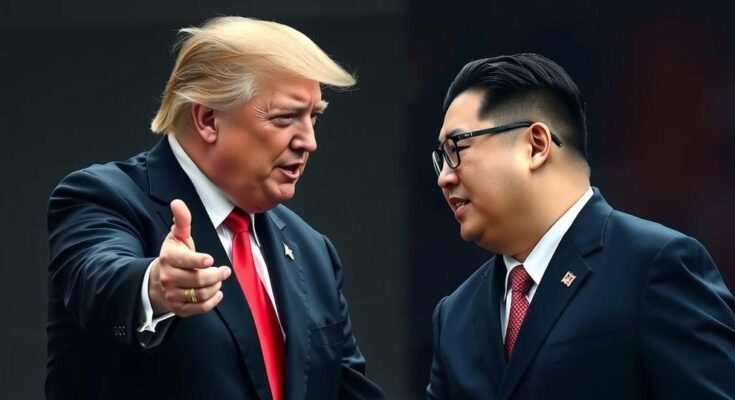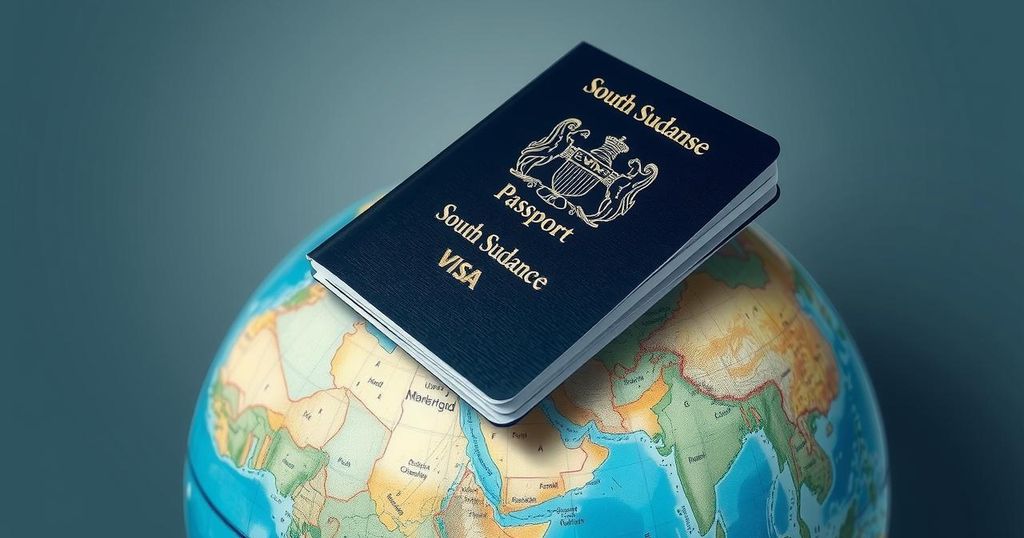As Donald Trump seeks to rekindle relations with North Korean leader Kim Jong Un, he faces a more emboldened adversary amid geopolitical complexities. Kim’s alignment with Russia and criticism of U.S. policy mark a departure from past dynamics. Analysts suggest Trump may need to adopt a firmer stance or offer significant concessions to facilitate any meaningful dialogue, as historical grievances complicate revisiting negotiations.
As Donald Trump prepares for another potential engagement with North Korean leader Kim Jong Un, he faces increased challenges due to Kim’s bolstered position on the global stage. Previously, Trump touted a unique rapport with Kim, believing he could influence him once more. However, Kim’s recent remarks, labeling U.S. policy as hostile, indicate a shift in dynamics. The stakes are heightened as North Korea supports Russia amid the Ukraine conflict and escalates tensions with its neighbors. Experts suggest that Trump enters this new phase with less leverage compared to 2017, given Kim’s growing assertiveness and established connections with Russia.
Despite Trump’s intentions to restore dialogue, analysts express skepticism regarding the possibility of renewed talks, primarily due to lingering resentments from past interactions. Kim’s experiences from previous summits, particularly the 2019 Hanoi meeting, have fostered a reluctance to engage without significant concessions from Trump. Furthermore, the geopolitical landscape has evolved since 2017, with North Korea emerging from isolation, aided by an alliance with Russia that has provided crucial support amidst international sanctions. As Trump contemplates negotiating a halt to North Korea’s nuclear advancements, the complexity of relationships and ongoing conflicts will play a pivotal role in shaping future interactions with Kim and the global community.
In the landscape of international relations, the dynamics between the United States and North Korea have historically oscillated between confrontation and diplomatic engagement. Donald Trump’s previous presidency marked a notable moment of dialogue, with unprecedented meetings between him and Kim Jong Un. However, the aftermath of these discussions has led to strategic shifts and heightened tensions, particularly with North Korea’s alignment with Russia during the invasion of Ukraine. Understanding this context is essential in evaluating potential future interactions between Trump and Kim.
In summary, as Donald Trump reenters the geopolitical arena with intentions to engage North Korea, he must navigate a far more assertive Kim Jong Un and a complex global landscape transformed by recent events. While Trump’s historical rapport with Kim could facilitate dialogue, skepticism remains regarding the prospects of productive negotiations. The evolving nature of U.S.-North Korea relations, compounded by external influences such as Russia, will significantly dictate the roadmap ahead for potential dialogues and agreements.
Original Source: www.businessinsider.com




